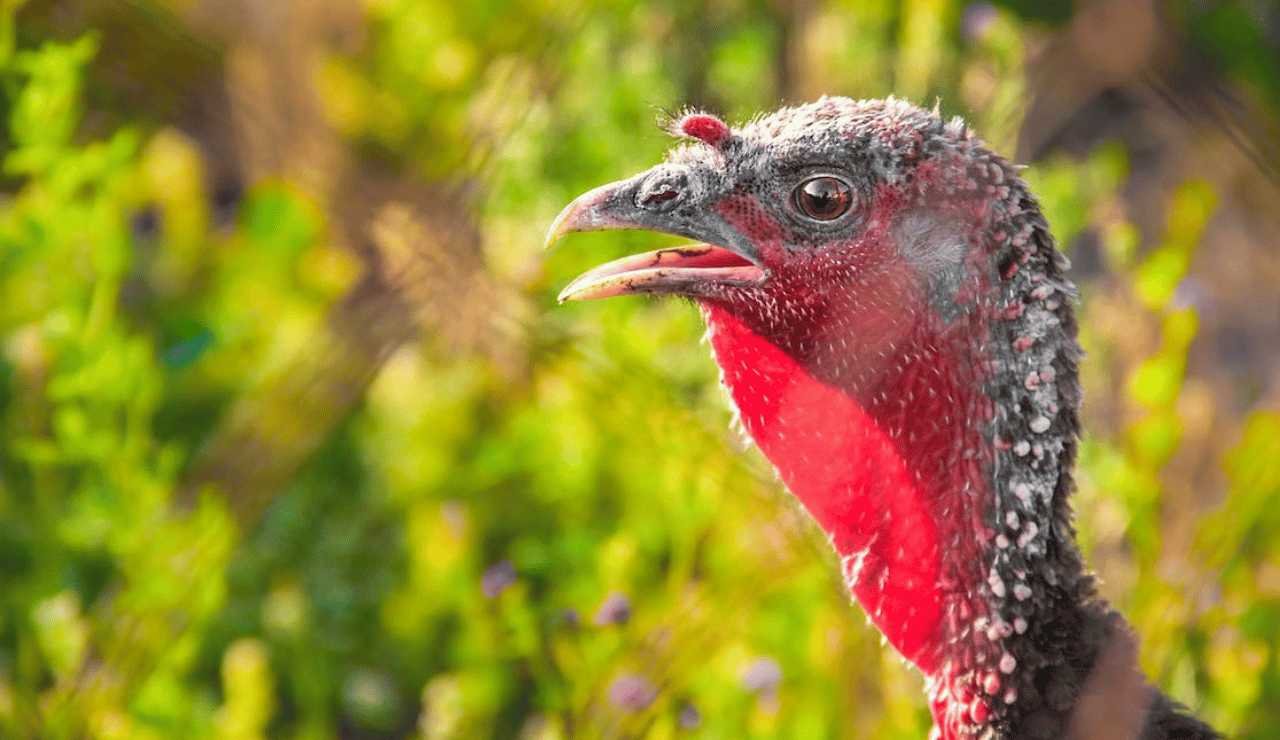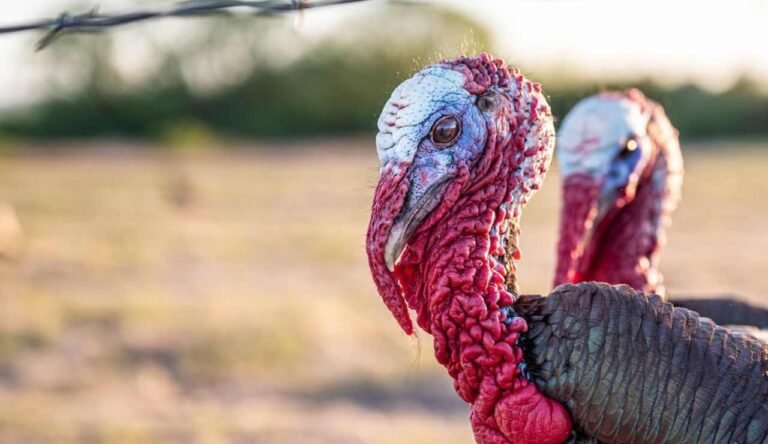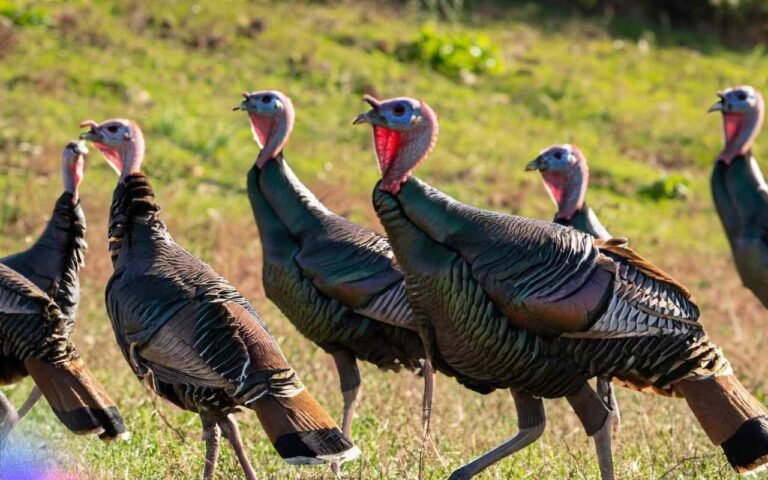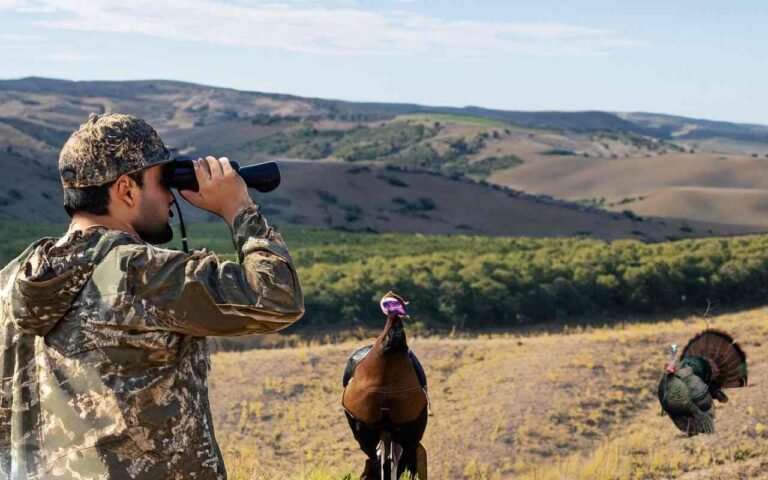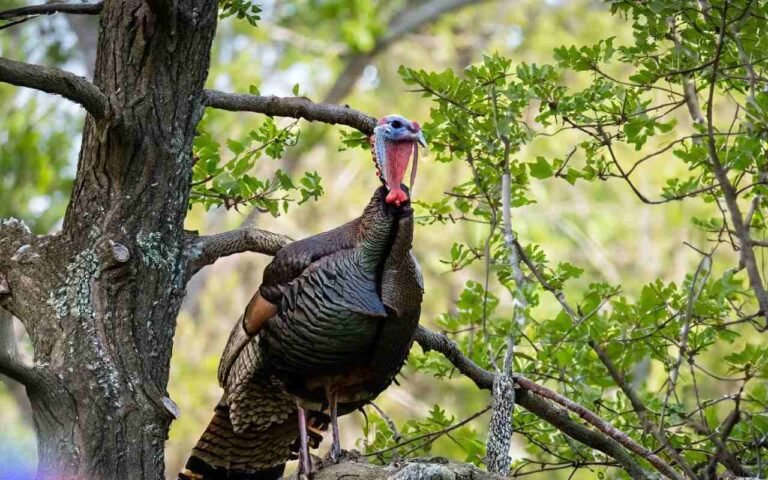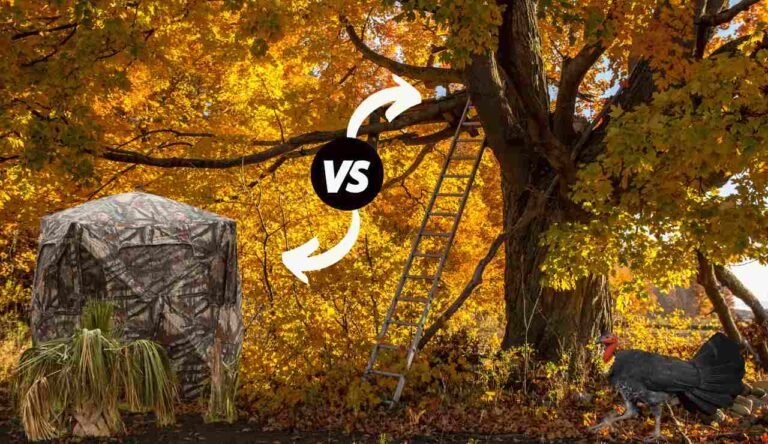What Do Wild Turkeys Eat? Uncovering the Surprising Diet of Wild Turkeys Explained [From Acorns to Insects!]
Wild turkeys are big, squat birds that are indigenous to North America. They belong to the order Galliformes together with quails, pheasants, and chickens. Wild turkeys need trees, grasses, and wetness in their habitats because these features provide them food, shelter, and places to roost; however, they may survive in the desert as well. Knowing what wild turkeys consume is crucial because it influences their health, growth, development, reproduction, interaction with other animals and how they affect the ecosystem. In this article, we’ll examine the diet of wild turkeys using valid data and resources.
What do wild turkeys eat?
Wild turkeys are opportunistic, adaptable omnivores with varied diet that changes based on the food sources available to them in their habitat. They mostly consume vegetation, including nuts, fruits, seeds, berries, insects, small reptiles, and leaves. Turkeys in agricultural areas consume grains and cereals, those living in woodland environments eat more nuts, fruits, and buds. In desert areas they eat cacti, seeds, and reptiles, whereas those who live in swamplands eat nuts, plants, frogs, salamanders, and worms. In addition to their nutrition, turkeys dust themselves, sun themselves, and groom themselves.
Common Foods in Wild Turkey Diet
| Food Type | Examples |
|---|---|
| Seeds and nuts | Acorns, hickory nuts, beechnuts, pecans, walnuts |
| Berries and fruits | Blueberries, blackberries, raspberries, grapes, apples |
| Insects and spiders | Grasshoppers, beetles, ants, caterpillars, spiders |
| Snails and slugs | |
| Small vertebrates | Frogs, lizards, snakes, rodents |
| Plant material | Grasses, leaves, buds, flowers, roots |
Seasonal Variation in Wild Turkey’s Diet
Wild turkeys eat both plants and animals. They are affected by seasonal diets.
A wild turkey’s primary spring and summer food sources include buds, leaves, tubers, roots, bulbs, and cacti. During this phase, grubs and insects give protein. Wild turkeys scrape and peck for food all day. Berries, wild grapes, crabapples, and other tiny fruits are favorites.
Fall gives wild turkeys acorns, hickory nuts, beechnuts, and walnuts. They may consume bird feed, field maize, and wheat. Consumption of berries and other small fruits is lower than in the spring and summer.
Wild turkeys mostly consume hard masts such as acorns and other nuts during the winter. At this time, agriculture and rubbish may offer food. Winter food supplies may impact wild turkey survival, particularly if the food is covered in snow and the temperature drops below average.
Food availability may influence wild turkey behavior. Males gobble to attract females during spring breeding. They may chat less and hunt more if food is short.
Finally, in the fall, wild turkeys consume nuts and seeds, hard mast in the winter, and green plant food and leaves in the spring and summer. Food availability may influence wild turkey behavior.
| Season | Available Foods |
|---|---|
| Spring | Grasses, insects, worms, snails and slugs, buds, young leaves, berries, and small animals |
| Summer | Insects, nuts, berries, and small animals |
| Fall | Acorns, nuts, fruits, berries, seeds, and insects |
| Winter | Acorns, nuts, fruits, and seeds |
Human Impact on Wild Turkey’s Diet
Human activities such as feeding wild turkeys with human food, deforestation, urbanization, and changes in farming practices like pesticides and herbicides have significantly impacted the food sources available. These diet modifications may reduce their capacity to forage and depend on synthetic meals. In addition, hunting practices can also lead to changes in their diet due to their reliance on human-provided food sources. These changes could affect species health and population. Thus, wild turkey population management and habitat protection are essential for their survival.
How do Turkeys locate and access their food?
Overall, depending on whether they are domestic or wild, turkeys have different dietary habits and distinctive methods for locating and obtaining food. Turkeys forage and travel miles searching for food, utilizing their great vision and hearing to discover good roosting and eating locations. They mostly eat insects and spiders in the wild and spend most of the day sleeping, grooming, or dusting. In addition to pecking and scraping the ground, turkeys use their bills to probe for insects or nuts in trees. Domestic turkeys need a carefully regulated diet of cereals, soybean meals, and vitamins to suit their nutritional needs. A metal waterer or a nipple watering system may supply clean water necessary for their health and well-being.
Nutrient Composition of Common Wild Turkey Foods
| Food Type | Protein (g/100 g) | Fat (g/100 g) | Carbohydrates (g/100 g) | Fiber (g/100 g) | Calories (kcal/100 g) |
|---|---|---|---|---|---|
| Acorns | 6.1 | 8.9 | 42.1 | 28.4 | 387 |
| Hickory nuts | 12.4 | 67.90 | 17.7 | 6.7 | 691 |
| Grasshoppers | 20.6 | 6.1 | 2.20 | 0 | 126 |
| Beetles | 20.5 | 9.9 | 0 | 0 | 175 |
| Blackberries | 1.4 | 0.2 | 8.199 | 3 | 43 |
| Apples | 0.3 | 0.2 | 13.8 | 2.4 | 52 |
Conclusion
In conclusion, wild turkeys eat a variety of plant- and animal-based foods. Their diet mostly comprises plants, such as berries, grains, and meals from green plants, as well as clover, sunflowers, and milkweed. Insects like grubs, grasshoppers, and beetles are important food sources for these birds. For instance, eastern wild turkeys consume ticks as well. Wild turkeys are opportunistic eaters and consume everything they can find when foraging, even though some humans may establish food plots, particularly for them. Additionally, sunbathing and dusting are crucial for wild turkeys to maintain their health and plumage. Wild turkeys generally have varied diets and may adapt to various food sources depending on the area and time of year.
Frequently Asked Questions
What do turkeys in the wild eat?
As omnivores, wild turkeys consume many things, including acorns, nuts, seeds, berries, fruits, grasses, roots, insects, tiny amphibians and reptiles.
Do wild turkeys eat crops?
Certainly, wild turkeys consume crops. Wild turkeys are omnivorous animals that eat various foods, including seeds, grains, fruits, invertebrates, seeds, and green plant matter. Although soybeans are not a favorite meal, they may also consume them. Turkeys may sometimes harm crops in farms and gardens.
Do wild turkeys eat insects?
Wild turkeys do consume insects. Wild turkeys eat a lot of insects. They scrape and peck all day for grasshoppers, beetles, snails, caterpillars, and ticks.
Do wild turkeys eat meat?
Wild turkeys consume tiny amphibians and reptiles as part of their diet and are omnivores.
What do wild turkeys eat in the winter?
Wild turkeys may still scavenge for food on the ground in the winter, but they will also consume tree and shrub buds and twigs.
- Louisiana Turkey Season 2026: LA Turkey Hunting [Dates, Regulations, Licenses & More] - January 5, 2026
- Kentucky Turkey Season 2026: Latest Hunting Dates, Regulations & Licenses! - January 5, 2026
- Kansas Turkey Season 2026-2027: Latest Dates, Licenses, and Regulations Now Available! - January 3, 2026
